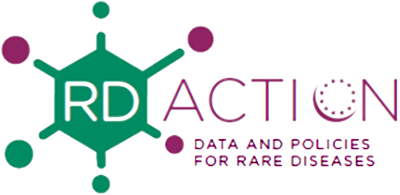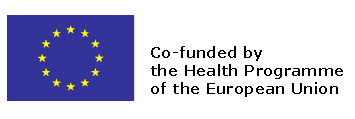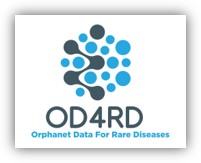EU projects
EU activities
Various activities promote the exchange and harmonisation of health data in Europe in order to support interoperable use. The Coding Systems and Registers Division at Federal Institute for Drugs and Medicil Devices (BfArM) participates in several initiatives coordinated by the European Commission.
Subgroup of Semantics
The Subgroup on Semantics advises the European eHealth Network (eHN), a voluntary network of European national authorities responsible for the exchange of health data. It advises the eHN on the strategic direction for the use of coding systems in Europe, as well as on semantic interoperability and standardisation, in order to promote the cross-border exchange of health data. The BfArM contributes German perspectives and coordinates these at European level.
Myhealth@EU

The eHealth Digital Service Infrastructure (eHDSI) aims to ensure that European citizens can use their electronic health data even when travelling outside their country within the EU. It enables the secure, efficient and interoperable exchange of personal health data between EU countries. Citizens can recognise these services by the "MyHealth@EU" label. Cross-border health services such as electronic prescription and dispensing and electronic patient summaries are currently being gradually introduced in all EU countries.
MyHealth@EU is part of the Regulation on the European Health Data Space (Regulation (EU) 2025/327 Article 23). It is a secure network of national contact points through which electronic health data will be exchanged in the so-called priority categories (Article 14), namely patient summaries, electronic prescriptions and dispensing of medicines, medical imaging and related imaging-based findings, results of medical examinations, including laboratory and other diagnostic results and related reports, and discharge reports.
Within the framework of Section 219d SGB V National Contact Point, the German Liaison Office for Health Insurance Abroad of the Central Association of Statutory Health Insurance Funds (GKV-SV DKVA), together with the gematik GmbH and the BfArM, are responsible for establishing the hub in Germany through which electronic health data will be exchanged between Germany and other European countries. Together with the other European countries and in coordination with the organisations involved in Germany, the BfArM defines the semantic building blocks for cross-border data exchange and supports the encoding of data so that it can be made available and exchanged independently of language.
Further information:
Electronic cross-border health services
Regulation on the European Health Data Space
Information on the European Health Data Space

EU Joint Action Xt-EHR

The Xt-EHR Joint Action (Extended EHR@EU Data Space for Primary Use) supports the European Commission's commitment to a "Europe fit for the digital age" and the objectives of the EU4Health programme to strengthen health systems in member states. In Xt-EHR, more than 50 partner organisations from 26 European countries are working together to describe the requirements, technical specifications and implementation guidelines that will improve interoperability and the electronic exchange of health records between EU Member States. The project will run for 30 months from November 2023 to April 2026.
The Joint Action paves the way for the regulation implementing the European Health Data Space (EHDS) with regard to the collection and exchange of primary data between electronic health records in Europe. Among others, Xt-EHR is preparing the framework conditions for the harmonisation and exchange of data for the so-called priority categories (EHDS Regulation, Article 14), the electronic patient summary, the e-prescription, electronic laboratory findings and image data, and hospital discharge reports.
The gematik GmbH and the BfArM are responsible for work package 2 "Dissemination" in the Joint Action and coordinate stakeholder participation and the gathering of requirements for the specifications to be developed for Germany.
Further information:
Xt-EHR - Extended EHR@EU Data Space for Primary Use

X-eHealth

The European project X-eHealth was carried out between September 2020 and November 2022. It has made a significant contribution to preparing the European framework for the infrastructure for the cross-border exchange of health data in Europe for the so-called priority categories. A common approach was explored for the exchange of data in the areas of laboratory testing, medical imaging, hospital discharge reports and the documentation of rare diseases in the EU, and preparations were made for its implementation in the eHealth Digital Service Infrastructure (eHDSI).
The BfArM has accompanied these developments in order to incorporate the results into the design of the coded content in electronic patient records in Germany.
Further information:
X-eHealth - Exchanging Electronic Health Records in a common framework
RD-Action

The Joint Action Rare Disease Action (RD-Action) ran from June 2015 to July 2018 and aimed to create a unified European approach to addressing the challenges in the field of rare diseases. 34 beneficiaries and 30 collaborating partners from 40 countries participated in the Joint Action.
RD-Action consisted of six work packages (WP). DIMDI led WP 5 on the management, maintenance and promotion of the introduction of ORPHAcodes in EU Member States. According to the 2009 Council Recommendation on an action in the field of rare diseases, EU member states should, among other things, ‘ensure that rare diseases are adequately coded and traceable in all health information systems [...]’. RD-Action provided the basis for implementing this part of the Council Recommendation at European level.
WP 5 served to develop a general strategy and tools (such as coding guidelines) to implement coding with ORPHAcodes in European countries, furthermore to develop a general strategy and tools (such as coding guidelines) for implementing coding with ORPHAcodes in European countries. It also served to specify the resources necessary for uniform coding of RD in Europe and to promote the use of ORPHAcodes in member states through the joint use of the coding tools developed in WP 5 and by testing a master file provided (master file for statistical reporting with ORPHAcodes). This should enable simple and standardised coding of rare diseases in all EU member states. Finally, a plan for the maintenance and further development of the master file and coding guidelines was drawn up.
The master file and the documents produced are available on the RD-Action website under Leaflet and Documents, while the updated document versions produced in the follow-up project are available on the RD-CODE website.
Further information:
RD-Action - Rare Disease Action

RD-CODE

The RD-CODE (Rare Disease Code) project, funded by the European Union, took place from January 2019 to December 2021 with the participation of DIMDI and BfArM as its legal successor.
The aim of the project was to establish ORPHAcodes for coding rare diseases (RD) within the framework of existing national coding systems in order to further promote the standardisation and interoperability of RD coding at EU level.
Based on the documents ‘Standard procedure and guide for the coding with ORPHAcodes’ and ‘Specification and implementation manual of the masterfile’ developed in the RD-Action project, ORPHAcodes were implemented in the coding systems of four European countries as part of the project. The experience gained led to an adaptation of these documents, which can be used by other countries to implement ORPHAcodes in the future. Furthermore, recommendations for the coding of patients without a diagnosis were developed. The updated documents and the newly developed document ‘Existing experiences and guidelines about the coding of undiagnosed rare disease patients’ are available on the RD-CODE website. Introductory videos on the topics ‘Introduction to guidelines for ORPHAcoding’ and ‘Guidelines for coding undiagnosed patients’ are also available there.
Further information:

OD4RD

The OD4RD (Orphanet Data for Rare Diseases) project, funded by the European Union, started on the first January 2022. A pilot phase of 15 month was held from January 2022 to March 2023 (OD4RD1) and then the project has been renewed until the end of 2025 (OD4RD2). The project builds on Orphanet’s specific expertise, and on its organisation as a long-lasting, well-established network. In terms of content, the project aims to promote the generation of standardised, interoperable data on rare diseases (RD) by maintaining and further developing the Orphanet nomenclature and implementing it in expert centres (hospitals specialising in rare diseases). This contributes to the standardisation of data collection in the various application areas of participating European countries (registers, electronic data files, etc.).
As in the preliminary project OD4RD1, BfArM has taken the lead for work package 4 (‘Consolidate and Expand national Orphanet nomenclature hubs’) and is supported by Karolinska University Hospital, Sweden. In this work package, the expansion of national Orphanet contact points will be promoted, which will act as contact points for the support of ORPHAcode implementation. Other tasks of the Orphanet contact points include to provide training on ORPHAcode use and to raise awareness of its benefits among policy makers and practitioners working in the healthcare system for people with RD.
Further information:
OD4RD - Orphanet Data for Rare Diseases
Flyer Orphanet National Hub Germany

JARDIN

The EU project JARDIN (Joint Action on Rare Diseases Integration) is a Joint Action co-financed by the EU4Health funding programme. Its goal is to integrate the European Reference Networks (ERNs) for rare and highly complex diseases, which have been established EU-wide since 2017, into the national health systems of EU member states more effectively. JARDIN brings together a consortium of 60 partner organisations from 29 countries to work towards making the specialised care competencies available in the ERNs more accessible to people with rare and highly complex diseases. Representatives of national health authorities, experts in rare diseases and patient organisations work closely together to develop recommendations and implementation pilots for patient pathways, national reference networks and data management for rare diseases, as well as to exchange experience and best practices.
Germany is participating in JARDIN with a multidisciplinary consortium. In addition to the Federal Ministry of Health as the consortium leader, this includes the secretariat of the National Action Alliance for People with Rare Diseases, the Federal Institute for Drugs and Medical Devices (BfArM), the Alliance of Chronic Rare Diseases (ACHSE e.V.), and the Centres for Rare Diseases at the University Hospitals Frankfurt/Main, Heidelberg, Tübingen and Würzburg.
Germany has a unique opportunity to actively contribute to the development of cross-border healthcare, share its expertise in rare diseases and promote the establishment of interoperable processes and standards.
Further information:
JARDIN - Joint Action on Rare Diseases Integration

